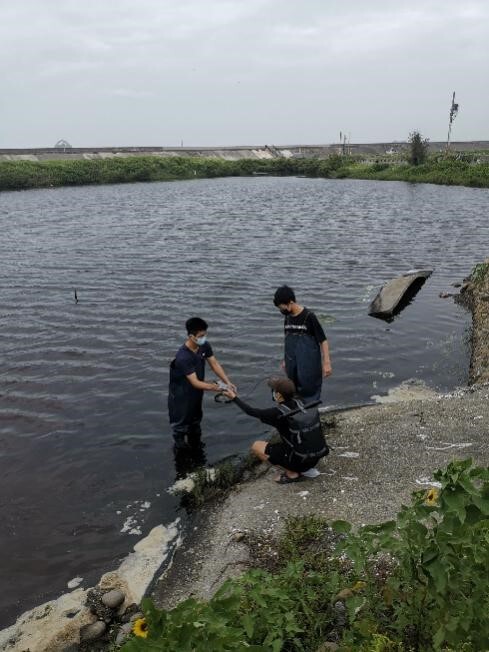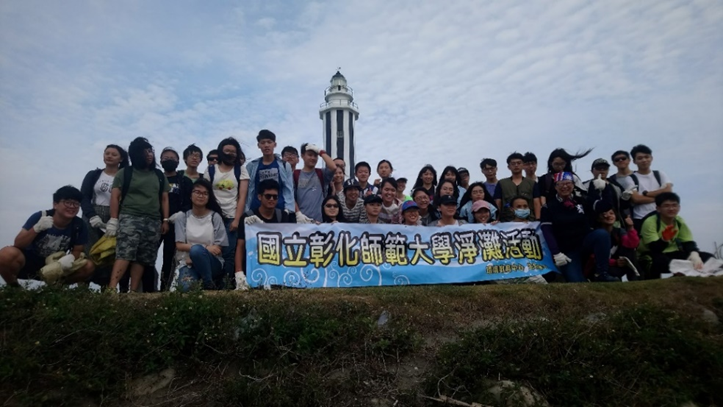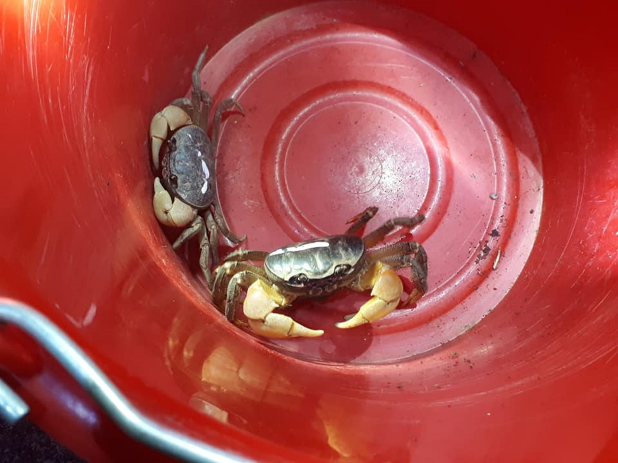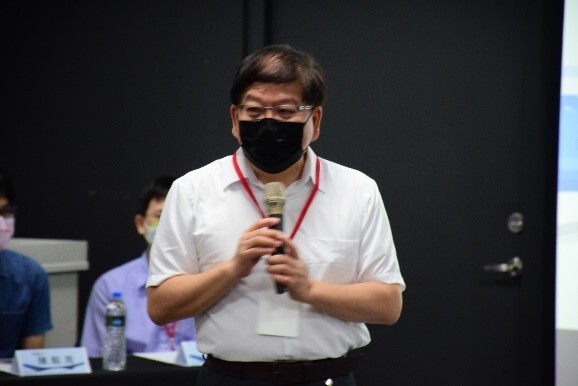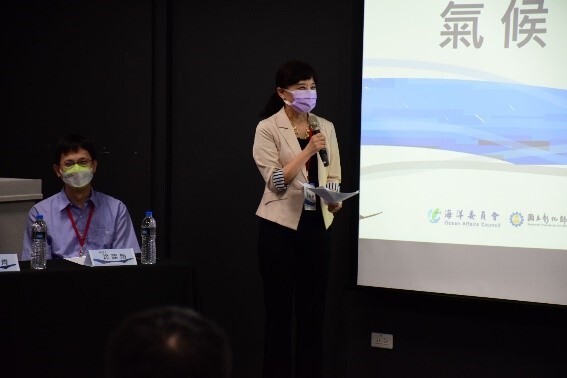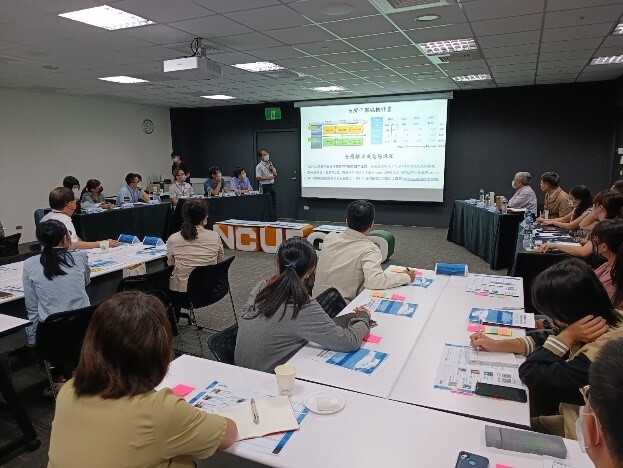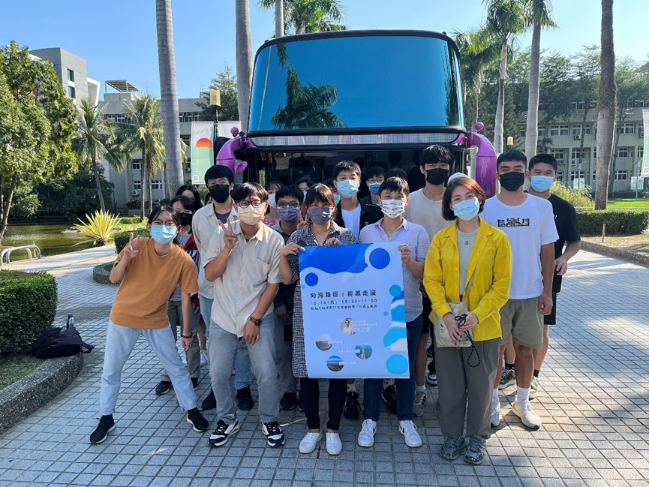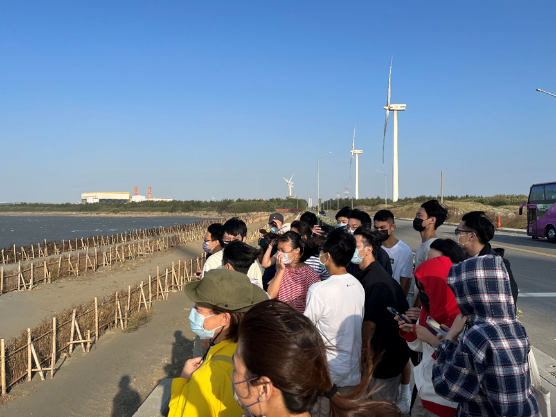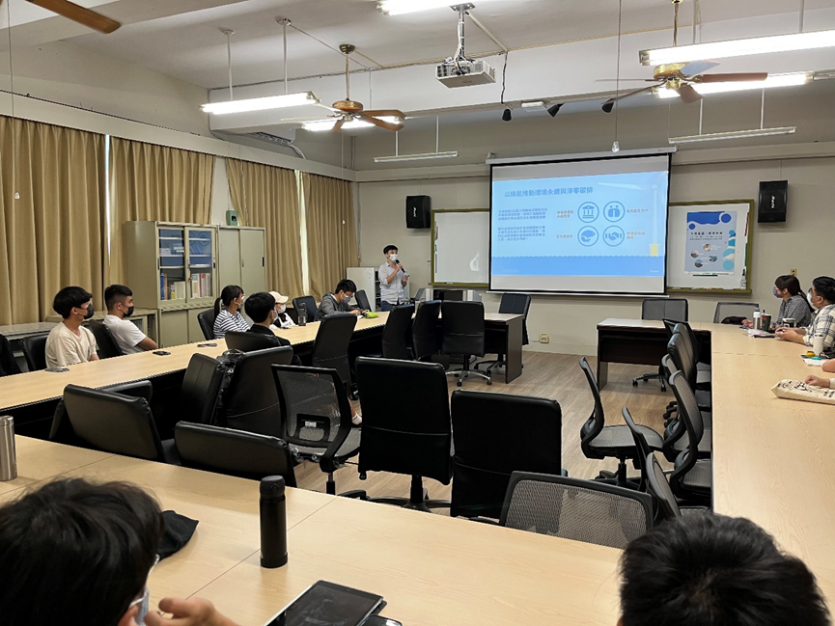SDG 14.3.1 Conservation and sustainable utilisation of the oceans (events)
NCUE has at least four programmes to promote conservation and sustainable utilisation of the oceans, seas, lakes, rivers and marine resources. They include the Environmental Education Centre’s “Fangyuan Reengineering USR Seed Programme” and “2020-2022 In-Depth Cultivation of Fangyuan, Working Hand in Hand with Dacheng: Industrial and Environmental Sustainability Plan of the Two Townships of Changhua County Project”; the Center for General Education’s “Marine Culture and Taiwan” and “Introduction to Marine Life Sciences”; the Department of Biology’s “Program for Kenting National Park/Investigation on Invasion and Control Strategy of Yellow Crazy Ants in Kenting National Park”; Department of Geography’s “Complexity of Coastal Environmental Governance and Marine Education: Climate, Environment, and Development” and “Towards the Ocean Roadmap/Energy Resource Explorations”, as shown in Table 1. They are discussed in detail below:
Table 1. Related activities and projects
|
Project activities |
Subsidized units |
|
2020-2022 In-Depth Cultivation of Fangyuan, Working Hand in Hand with Dacheng: Industrial and Environmental Sustainability Plan of the Two Townships of Changhua County Project |
Ministry of Education |
|
“Marine Culture and Taiwan” and “Introduction to Marine Life Sciences” |
|
|
Program for Kenting National Park/Investigation on Invasion and Control Strategy of Yellow Crazy Ants in Kenting National Park |
Kenting National Park |
|
“Complexity of Coastal Environmental Governance and Marine Education: Climate, Environment, and Development” and “Towards the Ocean Roadmap/Energy Resource Explorations” |
|
1. Fangyuan Reengineering USR Seed Programme and 2020-2022 Sprouting Programme for In-Depth Cultivation of Fangyuan, Working Hand in Hand with Dacheng: Industrial and Environmental Sustainability Plan of the Two Townships of Changhua County Project, related event photos as shown in Figures 1-2. Website:
https://www.facebook.com/NCUEUSR/photos/?tab=album&ref=page_internal.
|
|
|
Figure 1. Teachers and students of NCUE inspect water quality in fish farms to ensure that the water supplied to fish farms and drainage water are clean and devoid of harmful pollutants, and fishery operations do not pollute or diminish local water quality |
|
|
|
Figure 2. In addition to participating in the Changhua Beach Cleanup every year, NCUE also organizes activities and various other multi-disciplinary courses to clean up the ocean to reduce the volume of plastic waste that reaches these marine resources. The results relating to the coastal areas’ eutrophication index and the amount of plastic debris in the ocean are recorded in the Taiwan International Coastal Cleanup Action Record |
2. Center for General Education:
The Center for General Education offered one class on “Marine Culture and Taiwan” and one class on “Introduction to Marine Life Sciences” in 2022, and the related links are listed below:
3. Programme for Kenting National Park/Investigation on Invasion and Control Strategy of Yellow Crazy Ants in Kenting National Park:
The programme involved assisting Kenting National Park to investigate the invasion status of Anoplolepis gracilipes (known as yellow crazy ant), one of the most harmful invasive species in the world, in the land crab distribution concentration areas (Houwan, Banana Bay, Shadao, Yongquan, and Harbor). This study is the first time that Anoplolepis gracilipes has been found to threaten the land crab population in East Asia. In addition to ant damage, land crabs also face threats from road killing, habitat destruction, and human harvesting. In recent years, the number of land crabs has continued to decline, despite efforts to close roads, protect crabs, and set up ecological reserves. This study not only highlights the importance of prevention and control of Anoplolepis gracilipes but also provides some suggestions on prevention and control. In addition to traditional chemical control, habitat restoration and removing potential nesting sites for Anoplolepis gracilipes may play a role in the control efforts by potentially increasing the habitat suitable for land crabs and hinder the establishment of Anoplolepis gracilipes. Considering the impact of Anoplolepis gracilipes on the ecological environment, ant control must be implemented continuously to reduce the probability of land crabs being killed and maintain the biodiversity of Kenting National Park, related event photos as shown in Figures 3-4.
|
|
|
Figure 3. Roads in Kenting are closed during the crab breeding season to prevent land crab killings |
|
|
|
Figure 4. Crab volunteers help release land crabs to the sea during the breeding period |
Project Video Link: https://www.facebook.com/NCUEEEC/videos/a.1053897732014001/402422844606560.
4. The Department of Geography’s “Complexity of Coastal Environmental Governance and Marine Education: Climate, Environment, and Development” and “Towards an Ocean Roadmap/Energy Resource Explorations”:
The Complexity of Coastal Environmental Governance and Marine Education: Climate, Environment, and Development. Taiwan, surrounded by the sea on all sides, is closely connected to the ocean in terms of natural environment, resources, industries, culture, education, and many other aspects. It is highly linked to people’s lives. Therefore, protecting the ocean is not only the government’s responsibility. It is crucial to raise awareness and understanding of the importance of the ocean among the general public, and to encourage people to care about and get involved in marine-related issues. The central region of Taiwan has prime natural conditions for green energy development. In recent years, the government has actively promoted the development of the green energy industry, making the central region a vital area for energy transformation. The installation of offshore wind turbines and solar panels raises concerns about the impacts on people, the environment, and ecology, which are gradually receiving attention. With the theme of “Complexity of Coastal Environmental Governance and Marine Education: Climate, Environment and Development”, the forum was organized to exchange views and engage in diversified dialogues on six aspects, namely climate, sand drifting, industry, culture, education, and energy, through round-table forums, a World Café, and comprehensive discussions, which were very beneficial to the participants. President Ming-Fei Chen and Dean Sheng-Hui Huang of the College of Liberal Arts also delivered speeches at the event, adding to the significance of the event. The Department of Geography of NCUE is committed to practicing university social responsibility. Starting with marine education, it has created an advocacy platform to raise awareness among students and the general public about the importance of the marine industry, culture, and ecological conservation. Through this event, they aimed to inspire people to become more actively engaged in the cause of marine environmental and ecological sustainability. For related event images, related event photos as shown in Figures 5-6.
|
|
|
Figure 5. Photos of the event |
|
|
|
Figure 6. The conference proceedings (https://reurl.cc/D321AR) |
Towards the Ocean Roadmap/Energy Resource Explorations:
The “Changhua Coastal Exploration Project” is a collaborative effort with the Department of Geography at the NCUE. It focuses on promoting the “Coastal Public Access Path” as the entry point to discuss various coastal issues and actions, with the project aiming to address and research a wide range of coastal topics and initiatives. This field trip focused on the theme of energy. Considering that the Changhua coast is a major hub for renewable energy development in modern times, it has become a hotspot for renewable energy in Taiwan. In terms of wind energy, Changhua has 115 onshore wind turbines and 2,263 square kilometers of offshore wind farms. In terms of solar photovoltaic energy, the Changhua Coastal Solar Plant has onshore and offshore solar energy facilities in the region. However, most of these energy facilities are located in environmentally sensitive areas with high biodiversity in Changhua. To address the issues of energy transition and environmental changes, close collaboration between local academic institutions, the community, and energy developers is essential in Changhua’s coastal region.
The event also featured Chih-An Lee, Manager of Sustainable Development at Orsted Taiwan. Ms. Lee has a background at Greenpeace and recently joined the Orsted team to focus on sustainability and biodiversity projects. Her expertise in environmental conservation and industrial development was a valuable addition to the discussions. The event commenced with a brief presentation by Ms.Lee, who outlined the five major impacts of offshore wind power on the environment and discussed Orsted’s biodiversity research initiatives taking place globally in the current year. The next part of the event took place in the Lunwei Area of the Changhua Coastal Industrial Park, where participants could experience the strong winds in the area. This provided insights into local land-use issues and the mechanisms involved in setting up wind turbines and solar photovoltaic panels.
In addition to the students from the Department of Geography, partners from the Green Land Association also participated in the event. They engaged in discussions from an ecological conservation perspective and talked about the potential environmental impacts of renewable energy installations, such as whether offshore solar power facilities might impact intertidal habitats. During the discussions, it became clear that even though the core theme of the field trip was energy, it was impossible to avoid addressing other related issues. Participants provided feedback, and it was mentioned that numerous other issues are occurring along the Changhua coast. The “Changhua Coastal Exploration Project” will continue with different themes to help participants understand and care about the Changhua coast, related event photos as shown in Figures 7-8.
|
|
|
Figure 7. Coastal energy field trip |
|
|
|
Figure 8. Energy issues discussions and exchanges |

